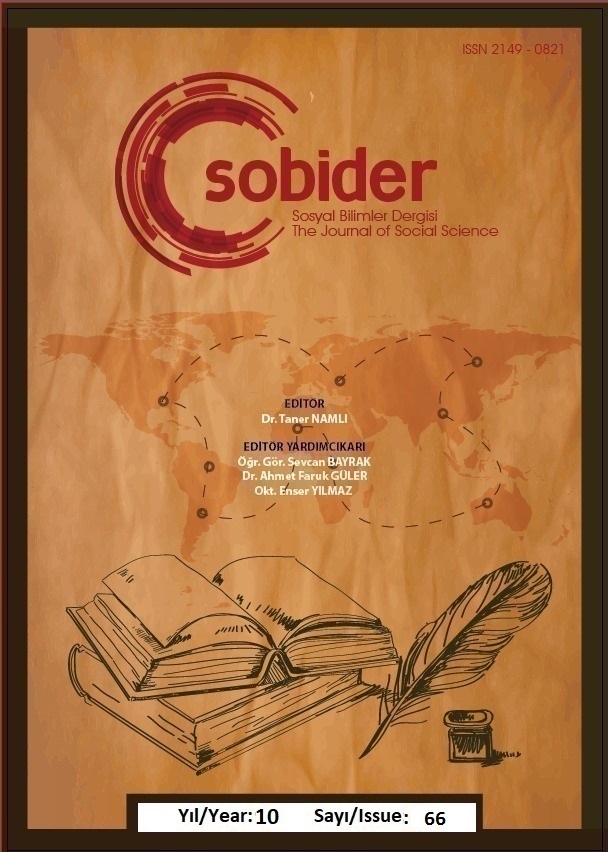Author :
Abstract
İlk insandan ilk medeniyetlere, günümüze ve gelecek yüzyıllara değin hiçbir zaman insanoğlunun, bilmeye ve öğrenmeye olan merakı ve bu yolda harcadığı çabası hiç bitmemiş ve bitmeyecektir. Zaten “felsefe” de bu demek değil midir? Yunanca da filo-sofia yani bilgelik, hikmet kelimelerinden türetilmiş, bilgelik sevgisidir. Filozof da hakikatin bilgisini arayıp bulmaya çalışan ve bu bilgiyi seven kişidir. Felsefe ve filozof hiçbir zaman bu hakikatin peşinden ayrılmamış ve hiçbir zamanda durağan kalmamıştır. Felsefenin sacayaklarından birisi olan epistemoloji yani bilgi felsefesi de felsefe tarihinde hiçbir zaman durağan olmamıştır. Doğa filozoflarından, Sofistlere, Sokrates’ten Platon’a İlkçağdan, Ortaçağa, Yeniçağdan, Çağdaş döneme hep bir arayış ve sorgulama hali olmuştur. Hakikatin bilgisini bulmak ve onu elde etmeye çalışmak her filozofun kaygısı ve gayesi olmuştur. Bunu ilk defa sistemli olarak yapan kişide Sokrates’in öğrencisi Platon’dur. Hemen hemen bütün eserlerinde bu arayışı ve sorgulamayı hocası Sokrates üzerinden yapmıştır. Ancak, bilgi nedir? Sorusunu açık ve net bir şekilde Theaetetos diyalogunda görmekteyiz. Platon’un özellikle Theaetetos diyalogunun sonunda bilginin tanımı ve konusu üzerine ileri sürdüğü “ bilgi; gerekçelendirilmiş doğru inanç” tanımı geleneksel epistemoloji adıyla çağdaş epistemolojinin bilgi konusundaki en temel tartışmaların zeminini oluşturmuştur. 1963’te Edmund L. Gettier tarafından kaleme alınan üç sayfalık “ Is Justified True Belief Knowledge? Adlı makalesi geleneksel bilgi tanımına karşı yazılmış ve yazarın bile tahmin edemeyeceği ölçüde büyük bir etki yaratmıştır. Gettier bu makalesinde” doğru bir inanç gerekçelendirilmiş ve hatta rasyonel hale getirilmiş olsa bile şans unsurunu dışarı da bırakmaya yetmeyeceğini ileri sürer.
Keywords
Abstract
From the first human to the first civilizations, to the present and to the next centuries, the curiosity of human beings to know and learn and their efforts on this path have never ceased and will never end. Isn't that what "philosophy" means anyway? It is the love of wisdom, derived from the Greek words filo-sofia, meaning wisdom, wisdom. A philosopher is a person who seeks and tries to find the knowledge of truth and loves this knowledge. Philosophy and the philosopher have never left the pursuit of this truth and have never remained stagnant. Epistemology, that is, epistemology, which is one of the pillars of philosophy, has never been static in the history of philosophy. From the natural philosophers to the Sophists, from Socrates to Plato, from the Ancient Age to the Middle Ages, from the New Age to the Contemporary period, there has always been a state of search and questioning. Finding the knowledge of the truth and trying to obtain it has been the concern and goal of every philosopher. The
person who did this systematically for the first time was Plato, a student of Socrates. In almost all of his works, he made this search and questioning through his teacher Socrates. However, what is knowledge? We see his question clearly and clearly in the dialogue of Theaetetus. The "knowledge" that Plato put forward on the definition and subject of knowledge, especially at the end of the Theaetetus dialogue; The definition of “justified true belief” has formed the basis of the most basic debates on knowledge in contemporary epistemology under the name of traditional epistemology. The three-page “Is Justified True Belief Knowledge?” written by Edmund L. Gettier in 1963. His article was written against the traditional definition of knowledge and had an impact that even the author could not imagine. In this article, Gettier claims that even if a true belief is justified and even rationalized, it is not enough to leave out the element of chance. Based on both Plato's Theatetos dialogue and Gettier's three-page article, our study aims to evaluate which questions were answered about the definition of knowledge and which
questions it brought with it.





